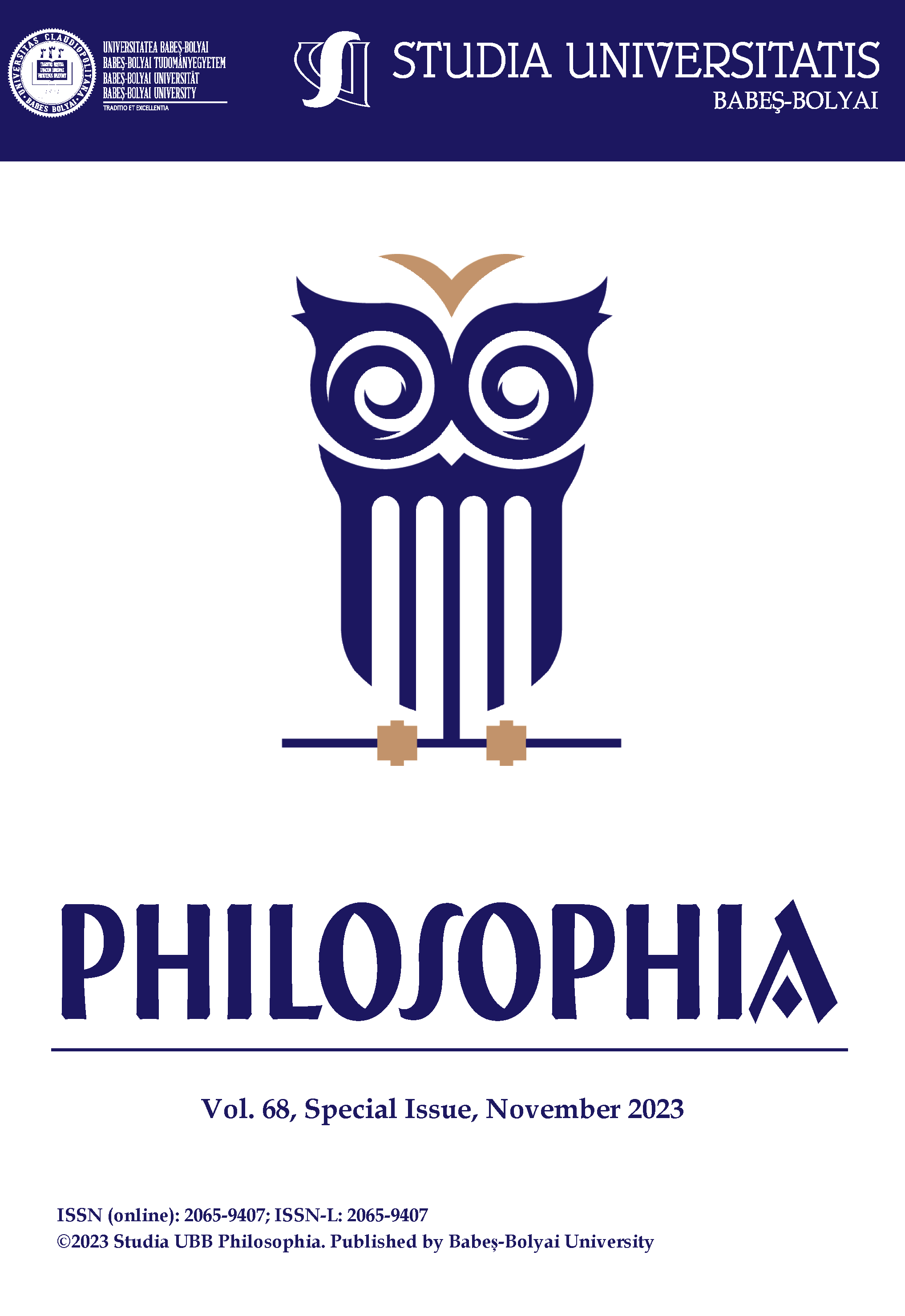Otium vs. Negotium as the Foundation of the Concept of Solitude in Petrarch’s Philosophical Works
DOI:
https://doi.org/10.24193/subbphil.2023.sp.iss.02Keywords:
solitude, leisure, self-knowledge, liberal arts, friendship.Abstract
The concept of solitude, as elaborated by Petrarch in the treatise
De vita solitaria, develops on the antagonistic structure of the concepts otium and negotium. These, in turn, contain notions and intellectual approaches found both in Latin Antiquity and in the Middle Ages, which attribute to loneliness a special dynamism by joining it with several other concepts such as: will, freedom and friendship. Each historical stage has a specific approach to the notions of otium and negotium, and in this sense Petrarch’s contribution can be considered significant, even if not entirely new, because he attempts a plenary approach to the idea of solitude.
References
Aristotel, Politica, translated by Alexander Baumgarten, Editura Univers Enciclopedic Gold, București, 2015.
Barsella, Susanna, “A humanistic approach to religious solitude”. In Petrarch: A Critical Guide to the Complete Works, Kirkham - Maggi, The University of Chicago Press, 2009.
Enekel, Karl, “Petrarch’s constructions of the sacred solitary place in ‘De vita solitaria’ and other writings”. In Solitudo. Spaces, places, and times of solitude in Late Medieval and Early Modern Cultures, Eneke-Gottler, Brill, Leiden-Boston, 2018/
Maggi, Armando, “You will be my solitude”. In Petrarch: A Critical Guide to the Complete Works, Kirkham - Maggi, The University of Chicago Press, 2009.
Petrarca, Francesco, De otio religioso, edited by Giulio Goletti, Edizione Nazionale delle Opere di Francesco Petrarca. Florence: La Lettere, 2007.
Petrarca Francesco, De vita solitaria, edited by Marco Noce, Milan: Arnoldo Mondadori Editore, 1992.
Petrarca Francesco, The Life of Solitude by Francis Petrarch, translated by Jacob Zeitlin, Urbana: University of Illinois Press, 1924.
Petrarca, Francesco, Rerum vulgarium fragmenta. Codice Vat. Lat. 3195. 2 vols. Edizione in facsimile (vol. 1 [2003]) and Commentario (vol. 2 [2004]), edited by Gino.
Trinkaus, Charles, The poet as philosopher: Petrarch and the formation of Renaissance consciousness, Yale University Press, New Haven and London, 1979.
Vergeer, Charles, Philosophy in Ancient Rome, Cambridge Scholars Publishing, 2018.
Downloads
Published
How to Cite
Issue
Section
License
Copyright (c) 2023 Studia Universitatis Babeș-Bolyai Philosophia

This work is licensed under a Creative Commons Attribution-NonCommercial-NoDerivatives 4.0 International License.





